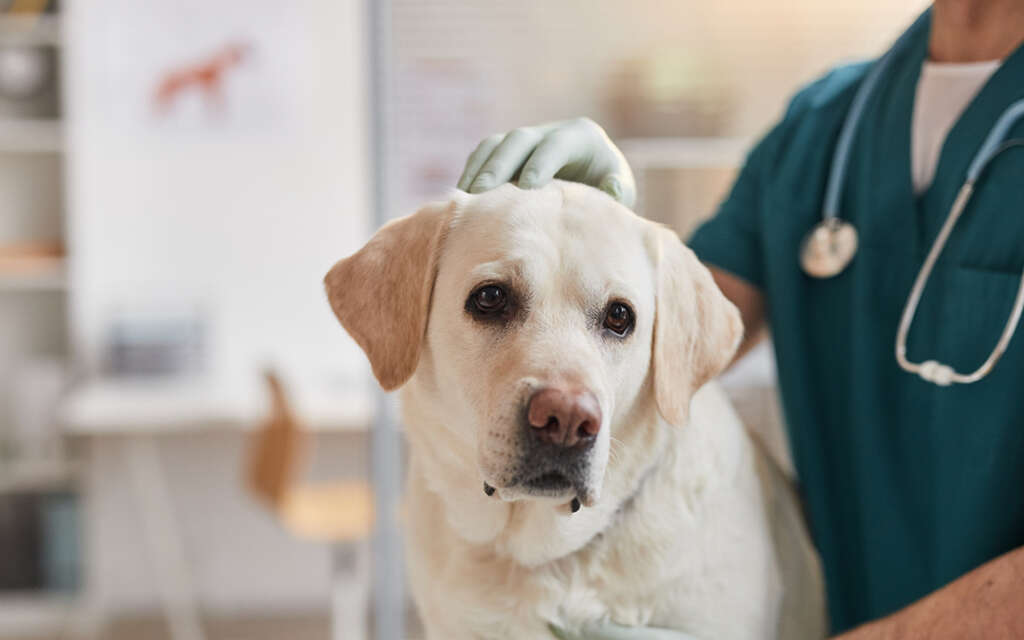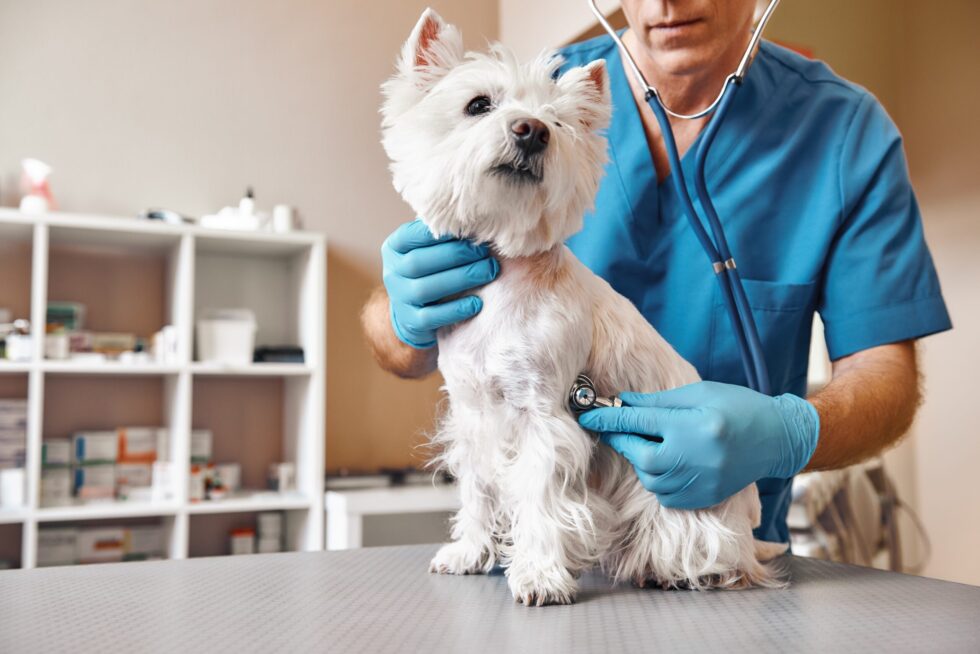Discovering blood in your dog’s stool can be a frightening experience for any pet parent. It’s a clear sign that something isn’t right, and understanding the potential causes can help you determine the next steps to ensure your dog’s health and well-being. In this article, we’ll explore the common reasons behind dog bloody stool, when to seek veterinary care, and how ModernVet can assist you in addressing this alarming issue.
What Does Blood in a Dog’s Stool Look Like?
How do you know if your dog is pooping blood? The most obvious sign is if you notice bright red blood, which indicates fresh blood. you may also notice a darker, tarry-looking substance in your dog’s stool (indicative of digested blood). Each type suggests a different location of bleeding within the digestive tract.
Why Is Dog Bloody Stool Concerning?
While occasional irregularities in stool might not signify a severe issue, consistent or severe bloody stools can indicate underlying conditions that require prompt attention.
1. Dietary Causes
Sudden diet changes can upset your dog’s stomach, causing inflammation or irritation in the digestive tract that can lead to your dog pooping blood. Food allergies or intolerances to specific ingredients, such as wheat or chicken, may also trigger adverse reactions, leading to inflammation or even small tears in the intestinal lining. Additionally, dogs are naturally curious eaters, and swallowing sharp objects like bones can harm their sensitive rectal area or lower digestive tract, potentially resulting in bloody stool.
2. Gastrointestinal Infections
Parasitic infections, such as hookworms or whipworms, can attach to the intestinal walls, causing blood in your dog’s stool. Viral and bacterial infections, like Parvovirus or Salmonella, can lead to severe bloody diarrhea, vomiting, and lethargy. These infections can cause serious complications, so if you notice any vomiting or lethargy in addition to your dog pooping blood, you should contact your emergency vet immediately.
3. Physical Trauma or Obstructions
Swallowing foreign objects can lead to blockages or injuries in the digestive tract, resulting in blood in your dog’s stool. Additionally, rectal injuries caused by straining to pass hard stools or trauma to the rectal area can cause fresh blood to appear in your dog’s poop. If you suspect your dog has swallowed something they shouldn’t have (such as a toy or household object), this is another reason to contact a veterinarian immediately.
4. Medical Conditions
Colitis and inflammatory bowel disease (IBD) involve chronic inflammation of the colon or intestines, often causing bloody diarrhea along with symptoms like weight loss and frequent bowel movements. Stomach ulcers, which occur in the stomach or upper digestive tract, can result in tarry, dark stools. Hemorrhagic gastroenteritis (HGE) is a condition characterized by sudden, severe bloody diarrhea, frequently accompanied by vomiting and dehydration. Additionally, cancer or tumors in the gastrointestinal system, especially in older dogs, can lead to bleeding.
Signs It’s Time to Call the Vet


- Persistent or severe bloody stool.
- Additional symptoms like vomiting, lethargy, or fever.
- Signs of dehydration (e.g., dry gums or skin not bouncing back after a pinch test).
- If your dog’s condition continues to worsen.
Routine Diagnostic Procedures
Your veterinarian will first ask for a comprehensive review of your dog’s medical history. Then, they may conduct the following to pinpoint the cause of blood in dog stool:
- Fecal Exams: To detect parasites or bacterial infections in your dog’s poop.
- Blood Tests: To assess your dog’s overall health and rule out underlying conditions.
- Imaging: X-rays or ultrasounds to identify blockages or tumors.
Treatment options for blood in your dog’s stool often include fluid therapy to address dehydration caused by severe diarrhea, ensuring hydration levels are restored through IV fluids if necessary. Diet adjustments can also play a significant role, with a bland diet of boiled chicken and rice helping to soothe an irritated digestive system, while dogs with food allergies may benefit from a prescribed hypoallergenic medical diet. In some cases, medications may be required to manage symptoms and address underlying issues.
Anti-parasitic drugs, antibiotics, or anti-inflammatory medications may be recommended depending on the diagnosis.
For cases involving blockages or tumors, surgical intervention may be necessary.
Pay Attention To Your Dog’s Poop!
Maintaining a consistent diet is crucial for your dog’s digestive health, as sudden changes in food can cause upset, so any new diets should be introduced gradually. Regular vet checkups are essential for early detection of potential health issues before they become serious. Additionally, staying on top of your dog’s deworming and vaccination schedule is key to preventing parasites and infections that could lead to bloody stool.
At ModernVet, we provide comprehensive wellness care to ensure your dog stays healthy year-round. If you’ve noticed blood in your dog’s stool, schedule an appointment with ModernVet today, or visit our pet preventative care in Johns Creek, GA page to learn more. Your pet’s health is our priority.




